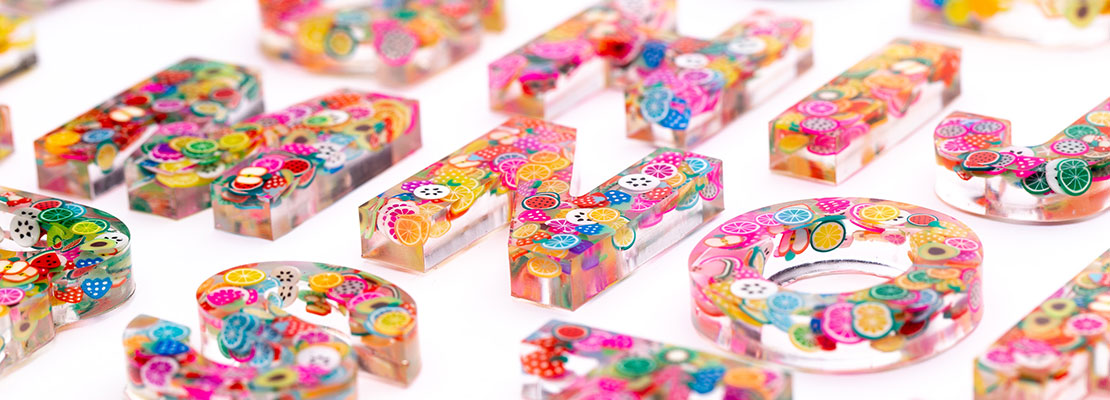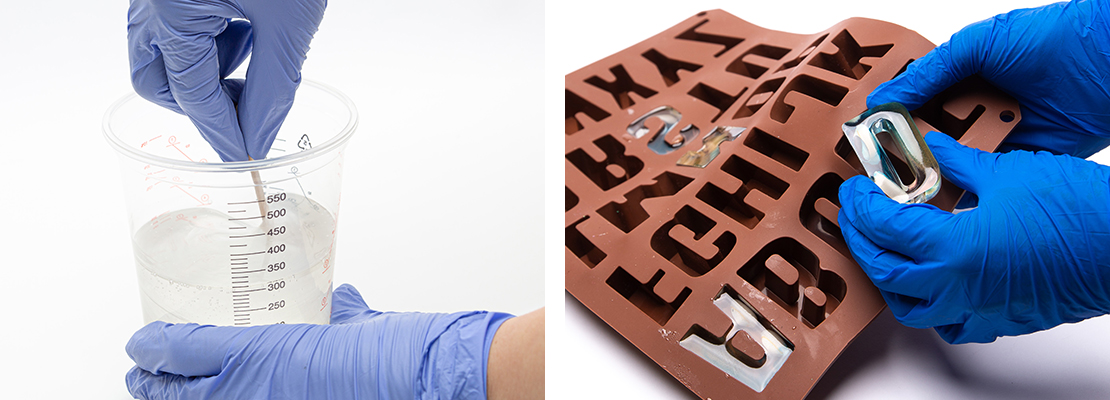Allergic Reactions to Epoxy Resin!
I'm Sean Scott, the Managing Director of Vuba. I have worked with resins since 18 and leaving college. Over the years I have seen and experienced many allergic reactions to a wide variety of resins. I want to share my experiences to help people who are working with resins avoid allergic reactions, or understand to do if they experience a reaction.
You should always consult the Safety Datasheets of a resin product prior to using. You can find those on our product pages in the Downloads section. You can see an example of the Part A here, and Part B here. An abbreviated version of these is available on the product labelling, and you can consult that when the product arrives to ensure you are observing the correct safety precuations.
So here are my experiences with resins....
Different products, different brands, all can have the same end result. Because one brand sensitises you it doesn't mean that brand has anything different in than another. For example, 2:1 epoxy resins are based on Bisphenol-A and regardless on the brand the raw materials will be broadly the same. So if you have a reaction to one brand, you can expect to have the same reaction thereafter to another brand.

Here's my tips:
- 1. Don't become sensitised in the first place! You can be unlucky, but typically it's skin contact which causes sensitisation to begin. I've worked with lots of people who have become sensitised, and it was mostly the messy ones (including a younger me) who would get the reaction! Not always, but mostly.
- 2. Spot the signs - it always seems to start on the inside of your forearms. Most people think it's just epoxy irritating their skin under their sleeves, but it's the start of sensitisation. From itchy becomes red spots and marks, and then it spreads usually ending up on the face.
- 3. Stop immediately! If you start to itch on your forearms stop, and take a break from epoxy completely! Make sure your lids are on securely, and keep out of the way of all epoxies until you any marks and itchiness has gone. A reaction to epoxy is not an instant thing, it takes days or weeks. Some people can work with epoxy for 5 years and then become sensitised.
- 4. It only gets worse (I've personally not seen it become anything worse than puffy eyes and face so don't panic straight away!). I'm not allergic to epoxy but I am to a different type of resin I used to work with when I first started with resins. I became sensitised and carried on and on, ignoring the signs until I was referred to as the 'elephant man' and could barely recognise myself in the mirror! At this point I called the none emergency line and had a hospital visit for a steroid injection. If you have any difficulty breathing, or feel unwell, I would recommend you too call the none emergency line.
- 5. Solvent makes it worse! When I was young I didn't want to be covered in resin and so would clean my hands with a strong solvent. When I eventually ended up at the doctor's I was told this had likely contributed to be becoming allergic.
- 6. I have seen 20+ people become allergic to epoxy over the last 20 years of working in and around epoxy. Once you become sensitised you will always have to take extra precautions. Even the odour can be enough to give you a reaction after the intial allergic reaction has taken place.

Don't have skin contact, wear the correct PPE, spot the signs and if you start to get itchy then stop! For most people this won't be a concern but hopefully it will help somebody!
Sean Scott







